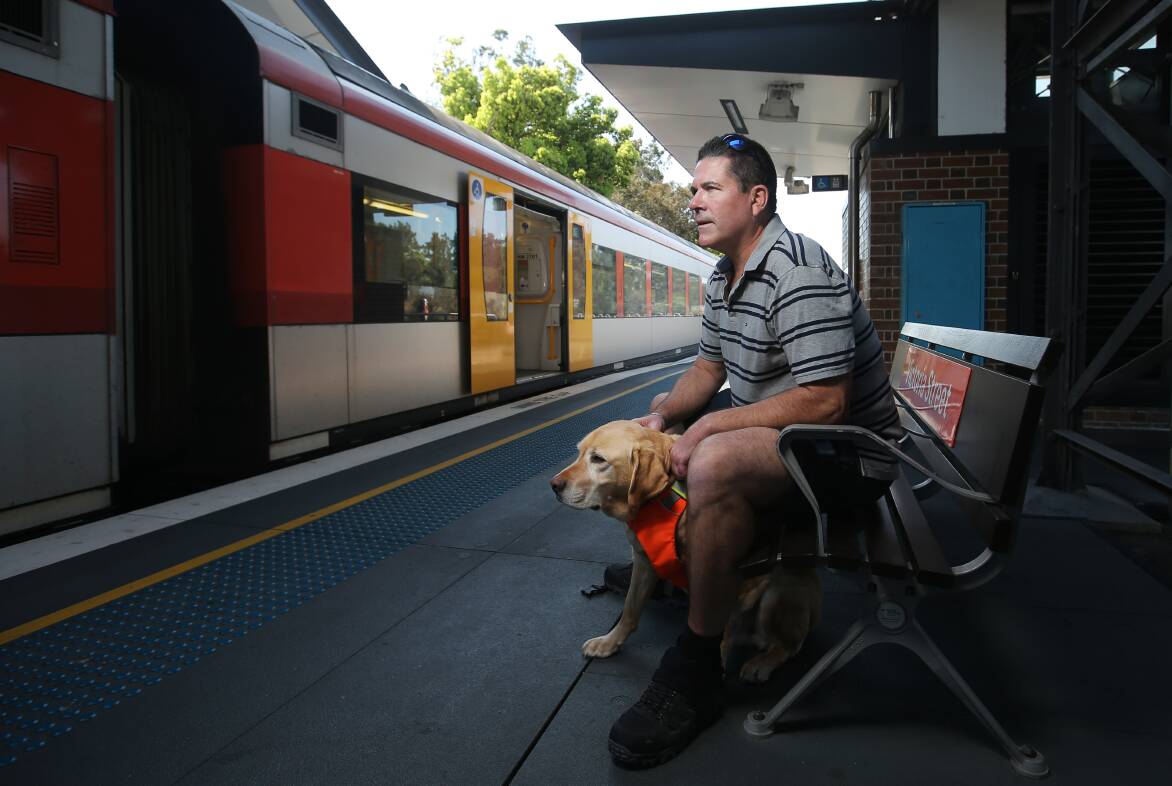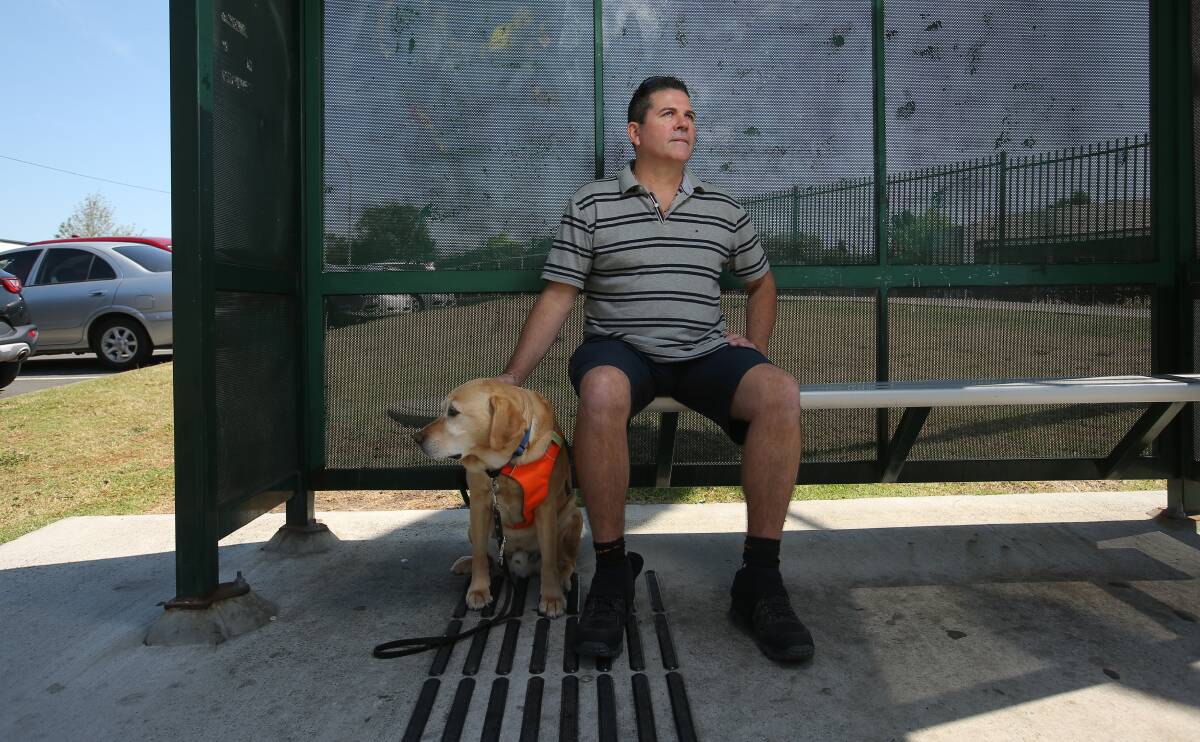NEVER on time, squished carriages and cancelled services is how 55 year-old Paul Johns describes his experience on public transport in the Hunter.
The Thornton resident is visually impaired and relies heavily on buses and trains to get to and from work and run daily errands, with his guide dog Keith.

"I rely on public transport seven days a week because I like to be independent," he said.
But even his golden Labrador has experienced the disrespect of unwanted pats and trampled paws from passengers between the Maitland and Newcastle interchange.
"Public transport is great when it works, but unfortunately the ball has dropped with buses not stopping for me, cancelling runs, overloaded and people not giving Keith the space he needs," he said.
Mr Johns said he can't rely on public transport to get him to doctor's appointments on time and he has waited hours due to buses not stopping for him and Keith.
"I got to a stage where I was going to make a sign and take it with me saying 'please stop for me', because I've waited hours for me and Keith just to get home," he said.
"By the time I get home you could drive to Sydney in the same time."
Newcastle Transport bus operators are required to stop for customers with a guide dog or cane waiting at a bus stop or within a bus zone, according to a Keolis Downer spokesperson.
"KDH takes community feedback very seriously. Our bus operators undergo extensive training, including theory, classroom activities and on road training, to better understand accessibility issues people may have when using public transport."
The spokesperson encouraged customers to reach out to their bus driver or customer service officers.
"With the help of the Operational Control Centre, they can assist customers making connections during their journey across the Newcastle Transport network," they said.
Mr Johns catches a train to work at 7.20am either from Metford or Victoria Street Station and says by the time it reaches him from Telarah, it's already packed with passengers.
"It also makes stops at Thornton, Metford, Warabrook, Waratah and Hamilton - I always seem to have to stand up," he said.
"It's loaded."
"People don't get up and help you, there's push bikes taking up three seats and some surfboards, but mainly people - they sit in the accessible seating and you see old people who are standing up," he said.
Priority seating is provided on trains, buses, light rail, metro and ferries for the elderly, those with disabilities, pregnant women and anyone that may be injured.
A Transport for NSW spokesperson said the organisation complies with national disability standards, which requires providers and operators to make priority seats available for passengers with disabilities and others in need of special assistance.
"While the vast majority of our passengers do the right thing, and these provisions for special seating are signposted on services, there are a small minority of passengers who forget that priority seating is there for the use of those who need it most," they said.
The spokesperson said anyone with a disability who is worried about finding a priority seat can ask transport staff on platforms, stops or interchanges for assistance before boarding so they can be assured they will be safely seated before the service moves.
"Our staff are trained to provide assistance to anyone who needs it across the public transport network."
Mr Johns says sharing his story is not making a point about having a disability, but instead a message and a reminder for the community to look after one another.

"It's not just about me or having a disability, this is about the community. I think if you see an old person standing up or someone with a disability, you should offer them a seat," he said.
"I also think we all have our heads buried in our phones and I think people have lost the concept of saying hello. I wish the community would work together and look after each other."







